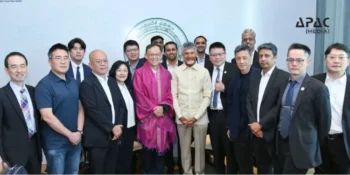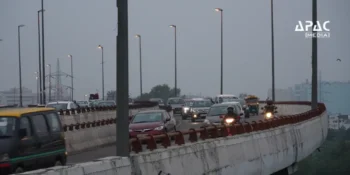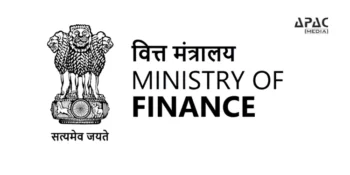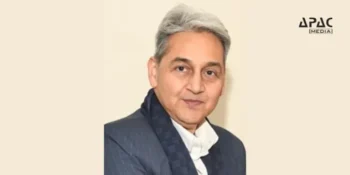New Delhi: India witnessed a turning point in its economic history on July 24, 1991. Dr. Manmohan Singh, then the Finance Minister in P.V. Narasimha Rao’s government, presented a budget that set India on a path of liberalization, globalization, and economic reform.
Delivered amidst one of the worst economic crises in independent India, this budget was not just a financial exercise but turned out to be a blueprint for the country’s transformation. Dr. Singh’s bold measures dismantled the License Raj, opened the economy to global trade, and ushered in an era of fiscal discipline.
As Dr. Singh began his speech, he tenderly dedicated the budget to the late PM Rajiv Gandhi, describing it as a tribute to Gandhi’s vision of a “strong, united, technologically sophisticated but humane India.” However, the moment was overshadowed by the gravity of the economic situation. “We have not experienced anything similar in the history of independent India,” Singh stated, reflecting the dire crisis that demanded immediate and courageous action.
The Economic Crisis: A Nation at the Brink
The backdrop to this historic budget was an economic meltdown. By 1991, India’s foreign exchange reserves had reached a critical level of Rs. 2,500 crores, barely enough to cover only weeks of imports. The fiscal deficit had expanded to over 8% of GDP, inflation was in double digits, and international confidence in the Indian economy was at an all-time low. The Gulf War of 1990 further exacerbated the crisis, causing a spike in oil prices and choking remittances from Indian workers in the region.
Dr. Singh’s speech candidly acknowledged the precarious state of the economy: “The balance of payments situation is most difficult… The current level of foreign exchange reserves would suffice to finance imports for a mere fortnight.”
It was then evident that without drastic reforms, the nation faced the risk of defaulting on its external debts.
Key Reforms: Breaking Free from the Past

The 1991 budget introduced a series of bold reforms that fundamentally reshaped the Indian economy. These measures aimed to stabilize the macroeconomic environment while dismantling the socialist policies that had dominated since independence. Here are the landmark changes:
Industrial Deregulation
One of the most significant reforms was the dismantling of the License Raj, which had stifled entrepreneurship and innovation for decades. The budget eliminated industrial licensing in most sectors, allowing businesses greater freedom to operate and expand. Dr. Singh emphasized the need for competition and efficiency, stating, “Barriers to entry and limits on the growth of firms have often led to a proliferation of licensing and an increase in the degree of monopoly.”
Trade Liberalization
The government reduced import tariffs and began phasing out quantitative restrictions on imports. The exchange rate was adjusted through a two-step devaluation of the rupee in July 1991, making Indian exports more competitive. These measures were the first steps toward integrating India into the global economy.
Dr. Singh described the policy shift as a move from “a regime of quantitative restrictions to a price-based mechanism,” signalling the transition to a market-driven trade regime.
Foreign Investment
Recognizing the need for capital and technology, the budget liberalized foreign direct investment (FDI) norms. Key sectors were opened to foreign investors, with equity caps raised to 51% in high-priority industries. In his speech, Dr. Singh stated: “Direct foreign investment would provide access to capital, technology, and markets. It would expose our industrial sector to competition from abroad in a phased manner.”
Public Sector Reforms
Dr. Singh acknowledged the inefficiencies plaguing state-owned enterprises and proposed measures to improve their performance. Up to 20% of government equity in select public sector units was to be disinvested, marking the beginning of privatization. Public enterprises “chronically sick and which cannot be turned around”, were to be referred to the Board for Industrial and Financial Reconstruction (BIFR) for revival or closure.
Financial Sector Reforms
The budget laid the groundwork for modernizing India’s financial system. Dr. Singh then stated: “The objective of reform in the financial sector would be to preserve its basic role as an essential adjunct to economic growth and competitive efficiency while improving the health of its institutions.”
A high-level committee was proposed to recommend structural reforms in the banking and financial sectors. Dr. Singh stressed the importance of “capital adequacy, prudential norms, and improved profitability” to ensure a robust financial infrastructure.
Fiscal Consolidation
To address the expanding fiscal deficit, Dr. Singh announced cuts in non-plan expenditure, including subsidies on fertilizers and sugar.
“We must act fast and act boldly. If we do not introduce the needed correctives, the existing situation can only retard growth, induce recession and fuel inflation, which would hurt the economy further and impose a far greater burden on the poor,” he noted.
Challenges and Sacrifices: Adjustment with a Human Face
While the reforms promised long-term growth, Dr. Singh did not shy away from acknowledging the immediate hardships they would bring. “There can be no adjustment without pain. The people must be prepared to make necessary sacrifices to preserve our economic independence and restore the health of our economy,” he said.
However, Dr. Singh assured that the adjustment would have “a human face.” Provisions were made to protect the poor and vulnerable, with enhanced allocations for rural development, employment programs, and social sectors like education and health. “Employment creation and poverty eradication in rural India will continue to receive the highest priority. At the same time, the Government is committed to the uplift of the weakest and the most vulnerable sections of our society.” Dr. Singh affirmed.
Immediate Impact: Stabilization and Confidence

The budget’s immediate impact was transformative. The World Bank and the International Monetary Fund (IMF) extended crucial loans to India, reflecting renewed international confidence. Inflation began to stabilise, and foreign exchange reserves gradually improved. The liberalised trade and investment policies attracted global players, leading to an influx of capital and technology.
The reforms also spurred growth in the private sector, with Indian entrepreneurs seizing new opportunities in a more open economy. Sectors like IT, telecommunications, and manufacturing began to flourish, laying the foundation for India’s rise as an economic powerhouse.
Long-Term Legacy: A Global Economic Power
The 1991 budget is now widely regarded as the turning point in India’s economic history. The liberalization measures paved the way for two decades of rapid economic growth, lifting millions out of poverty and transforming India into one of the world’s largest economies.
Dr. Singh’s vision of a modern, market-driven economy has had far-reaching implications. India’s IT sector emerged as a global leader, contributing significantly to GDP and employment. The dismantling of protectionist policies allowed Indian companies to compete on the global stage, fostering innovation and efficiency.
The Budget That Redefined a Nation
While many believe that the 1991 budget was revolutionizing, there was criticism about the long-term impact of the reforms. Despite this, it is now widely believed that Dr. Manmohan Singh’s 1991 budget marked a turning point in India’s economic history, laying the foundation for sustained economic growth and development.
In the speech, Dr. Singh offered a prophetic warning: “The decisions we take and do not take at this juncture will determine the shape of things to come for quite some time.”
“I do not minimise the difficulties that lie ahead on the long and arduous journey on which we have embarked. But as Victor Hugo once said, ‘no power on earth can stop an idea whose time has come’. I suggest to this august House that the emergence of India as a major economic power in the world happens to be one such idea. Let the whole world hear it loud and clear. India is now wide awake. We shall prevail. We shall overcome,” he concluded.
Decades later, the wisdom of those decisions is evident. The 1991 budget was not merely a response to an economic crisis; it was a vision for a new India.
Dr. Singh’s budget speech stands as a testament to the power of transformative leadership and bold policymaking. It redefined India’s economic destiny, ensuring that the country emerged stronger, more resilient, and ready to embrace the opportunities of the global economy.
Also Read –










Discussion about this post